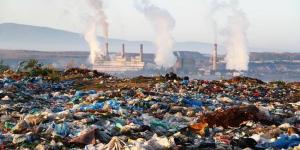Recycling and waste management
High quality articles created by Recycling and waste management experts will give you a broader and more complete view on this topic. You can also share your problem or any doubt about Recycling and waste management and we will help you find the best solution for you.
11 articles

Our planet is groaning under the weight of our waste. Landfills are overflowing, plastic is polluting our oceans, and the relentless "buy-use-throw away" cycle is taking its toll on the environment. If you are also feeling overwhelmed by plastic waste and want to make a real difference in reducing your overall...

An increase in industrial waste is due to the increase in population numbers and the anthropogenic activities we collectively carry out. We might not associate our daily consumption as being related to industrial waste, but almost everything we do requires materials which have been produced by industrial...

The majority of the world's waste is generated by humans due to our large population numbers and our current rate of consumption. While each individual creates their own amount of waste, our various industries create amounts of waste that is becoming increasingly problematic. This excessive growth of...

Plastics have made our lives better in many ways. But behind their versatility lies a complex reality. From fossil fuel extraction and production to pollution and waste, their environmental footprint is undeniable. This is why understanding the different types of plastics and their environmental impact is...

Radioactive waste is any material that contains radioactive substances. These substances are unstable and can emit harmful radiation. Radioactive waste can be produced from a variety of sources, including nuclear power plants, nuclear weapons production, and medical procedures. Radioactive waste is a serious...

Biodigesters are a technology that makes it possible to give organic matter a second chance to generate renewable energy as well as create natural fertilizers. The function of biodigesters is based on the action of microorganisms, especially bacteria. These microorganisms decompose organic matter in the absence...

Recycling organic waste is crucial for environmental sustainability. Organic waste refers to the biodegradable materials that decompose naturally, such as food waste and yard trimmings. When these materials are sent to landfills, they are buried and unable to decompose properly due to poor ventilation, temperature,...

Biomedical waste is the waste produced in medical institutions which is potentially biologically hazardous. This could be due to pathogens which are contained within them, as well as the type of waste which can cause pollution in the environment. While every industry produces different types of waste, few...

Getting rid of bricks and rubble requires either disposing or recycling the material. How this is done will depend on the facilities you have in your area, as well as other factors. Whether it is to develop our own skills, to save money or for whatever reason, many of us are doing our own construction...

While a growing majority of us are accepting that we need to mitigate the negative effects of climate change, our understanding remains generally poor. Finding the solutions we need to tackle pollution, waste and other contributors to harmful climate change is an ongoing process, but it is also an incredibly...

Despite the fact most of us will write more on our phone than a piece of paper, our consumption of the material has not waned. In fact, our use of paper continues to grow, with projections suggesting we will be using as much as 476 million tones by 2032[1]. Although paper product packaging is often...
